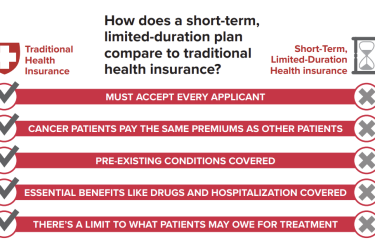Kaiser Health News and NPR have been collaborating on a series called Bill of the Month. This piece by KHN’s Chad Terhune was one of the most memorable. Like many of these articles, it got results – the story got a ton of attention, outrage was generated and voila, the bill was lowered. It was cited by a bipartisan group of senators who introduced legislation curbing the practice of “surprise billing.”

Surprise bills are particularly common in emergencies, such in this case where an insured patient had a massive life-threatening heart attack and ended up in the nearest hospital which was out of network (but orally told the patient not to worry about that). Sometimes the patient goes to an hospital of facility that is in network but the emergency physician, or a specific provider such as anesthesiologist is not. (Read an analysis of that legislation from Health Affairs here. The bill isn’t likely to go anywhere right now, but there’s a decent chance you’ll be hearing more about it next year.)
 Terhune is a particularly gifted reporter and storyteller, and this article recounted a particularly striking case. Drew Calver, a 44-year-old seemingly healthy high school teacher in Austin, Texas, had a devastating heart attack – and got a $108,951 bill even after his insurance paid nearly $56,000. “They’re going to give me another heart attack stressing over this bill,” Calver told Terhune.
Terhune is a particularly gifted reporter and storyteller, and this article recounted a particularly striking case. Drew Calver, a 44-year-old seemingly healthy high school teacher in Austin, Texas, had a devastating heart attack – and got a $108,951 bill even after his insurance paid nearly $56,000. “They’re going to give me another heart attack stressing over this bill,” Calver told Terhune.
“I can’t pay this bill on my teacher salary, and I don’t want this to go to a debt collector.” Amid the wave of publicity this article got, including the damning look at the big markup the hospital charged for the four heart stents, the hospital waived most of the bill. (Read Terhune’s follow up here).
Of course, highlighting individual cases isn’t the way to fix everything that’s wrong with health care. But it does shine light – leading to possible legislation and perhaps some changes in business practices by providers who don’t want to be the next one caught in this kind of limelight. Terhune, in his How I Did It essay, gives a highly detailed guide on how you can identify, document, assess, verify, explain and follow up on outrageous bills in your own communities.







